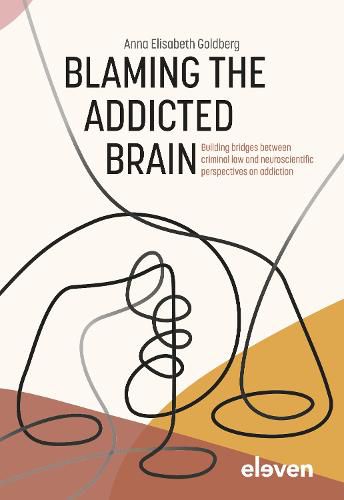Readings Newsletter
Become a Readings Member to make your shopping experience even easier.
Sign in or sign up for free!
You’re not far away from qualifying for FREE standard shipping within Australia
You’ve qualified for FREE standard shipping within Australia
The cart is loading…






This title is printed to order. This book may have been self-published. If so, we cannot guarantee the quality of the content. In the main most books will have gone through the editing process however some may not. We therefore suggest that you be aware of this before ordering this book. If in doubt check either the author or publisher’s details as we are unable to accept any returns unless they are faulty. Please contact us if you have any questions.
Addiction is pervasively present within the criminal justice sector, resulting in legal professionals regularly dealing with addicted defendants. Yet addiction is a complex and heterogeneous phenomenon, resulting in controversies regarding its conceptualisation, and thus difficulties in addressing addiction-related crime in court. Over the last decades, addiction has increasingly been conceptualised as a brain disease, which arguably could alter the law’s current approach towards the criminal liability of addicted defendants. In this book, an overview of the different ways of conceptualising addiction is provided, before applying this knowledge onto both the legal framework of Dutch criminal law, and to more universal legal concepts. As such, the compatibility of concepts such as intent, premeditation, insanity, diminished responsibility and prior fault, with potentially impaired capacities stemming from addiction, is critically examined. After assessing the ‘law in the books’, the second half of the book contains an evaluation of the ‘law in action’. This encompasses the role of addiction in case files, the presence of neuroscientific information in cases of addicted defendants, its influence on legal decision-making, and experiential accounts of legal professionals. Combining normative, comparative and experimental designs, the author does not only analyse some of the complexities of addiction in the context of criminal justice, but also contributes to the growing practice of interdisciplinary and empirical (neuro)legal research.
$9.00 standard shipping within Australia
FREE standard shipping within Australia for orders over $100.00
Express & International shipping calculated at checkout
This title is printed to order. This book may have been self-published. If so, we cannot guarantee the quality of the content. In the main most books will have gone through the editing process however some may not. We therefore suggest that you be aware of this before ordering this book. If in doubt check either the author or publisher’s details as we are unable to accept any returns unless they are faulty. Please contact us if you have any questions.
Addiction is pervasively present within the criminal justice sector, resulting in legal professionals regularly dealing with addicted defendants. Yet addiction is a complex and heterogeneous phenomenon, resulting in controversies regarding its conceptualisation, and thus difficulties in addressing addiction-related crime in court. Over the last decades, addiction has increasingly been conceptualised as a brain disease, which arguably could alter the law’s current approach towards the criminal liability of addicted defendants. In this book, an overview of the different ways of conceptualising addiction is provided, before applying this knowledge onto both the legal framework of Dutch criminal law, and to more universal legal concepts. As such, the compatibility of concepts such as intent, premeditation, insanity, diminished responsibility and prior fault, with potentially impaired capacities stemming from addiction, is critically examined. After assessing the ‘law in the books’, the second half of the book contains an evaluation of the ‘law in action’. This encompasses the role of addiction in case files, the presence of neuroscientific information in cases of addicted defendants, its influence on legal decision-making, and experiential accounts of legal professionals. Combining normative, comparative and experimental designs, the author does not only analyse some of the complexities of addiction in the context of criminal justice, but also contributes to the growing practice of interdisciplinary and empirical (neuro)legal research.